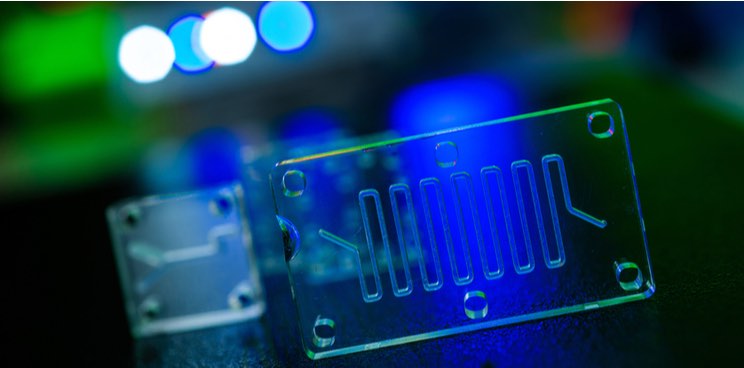New laboratory facilities have been opened today (July 19) at UK organ-on-chip company CN Bio to meet market demand.
The Cambridge-based company’s laboratory space has doubled in response to an increasing need for services as the technology gains traction within drug discovery and development programs.
Microphysiological systems
CN Bio concentrates on designing single and multi-organ microphysiological systems (MPS) and its contract research services harness its next generation MPS technology. The company has a decade of experience and a portfolio of applications including drug metabolism, safety toxicology, oncology and non-alcoholic steatohepatitis (NASH).
An organ-on-a-chip is a multi-channel 3-D microfluidic cell culture, integrated circuit that simulates the activities, mechanics and physiological response of an entire organ or an organ system, a type of artificial organ.
Gareth Guenigault, lead scientist of CN Bio’s contract research services, said: “This expansion is an exciting next step in the progression of our contract research services offering. As we see increasing awareness within the drug discovery, development and regulatory fields that animal models don’t always get it right, nor are ethically desirable, we are poised to offer solutions that fit researchers’ individual needs. By utilizing the power of organ-on-chip (OOC) technology to provide early stage, clinically translatable data across a range of applications, we hope to give customers greater confidence in the success of their projects, in a fraction of the time and cost.”
Rising demand
The company says the rising demand for services demonstrates acceptance of OOC data by pharma and biotech companies in their therapeutic programs. This, they add, is being fueled by repeat business, growing interest from regulatory agencies, the technology’s ability to predict clinical outcomes and its potential to replace animal models – especially for the testing of new drug modalities with human-specific modes of action.
In May 2020, CN Bio Innovations secured €7.98M (£7M) from Chinese investors to bolster its US market and expand European activities.
Partnering 2030: The Biotech Perspective 2023






